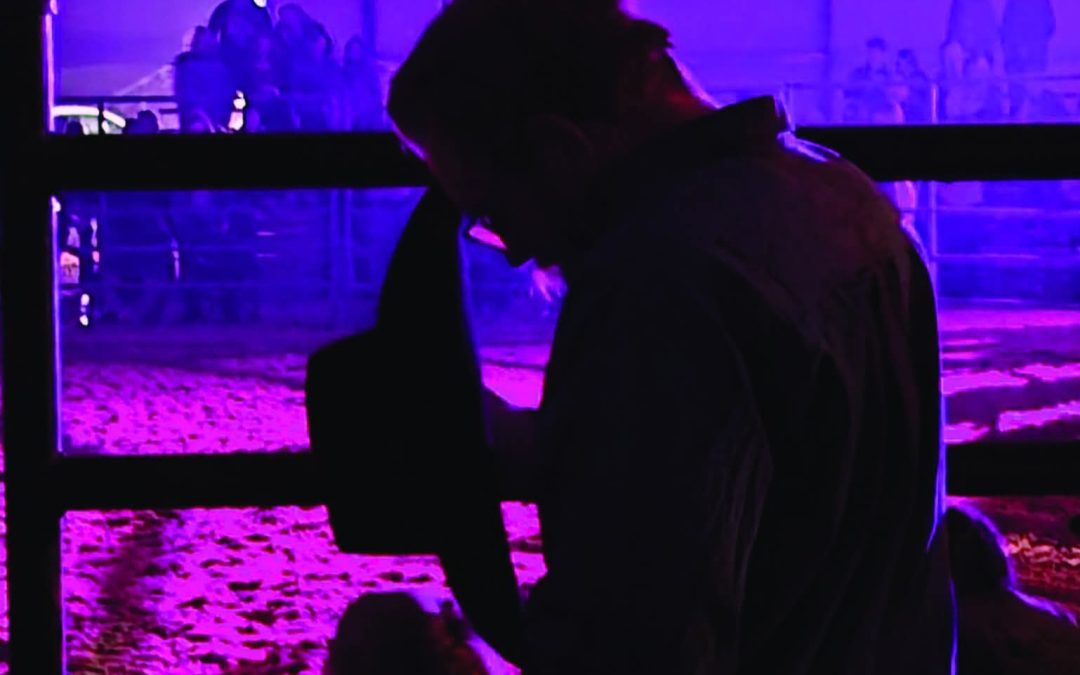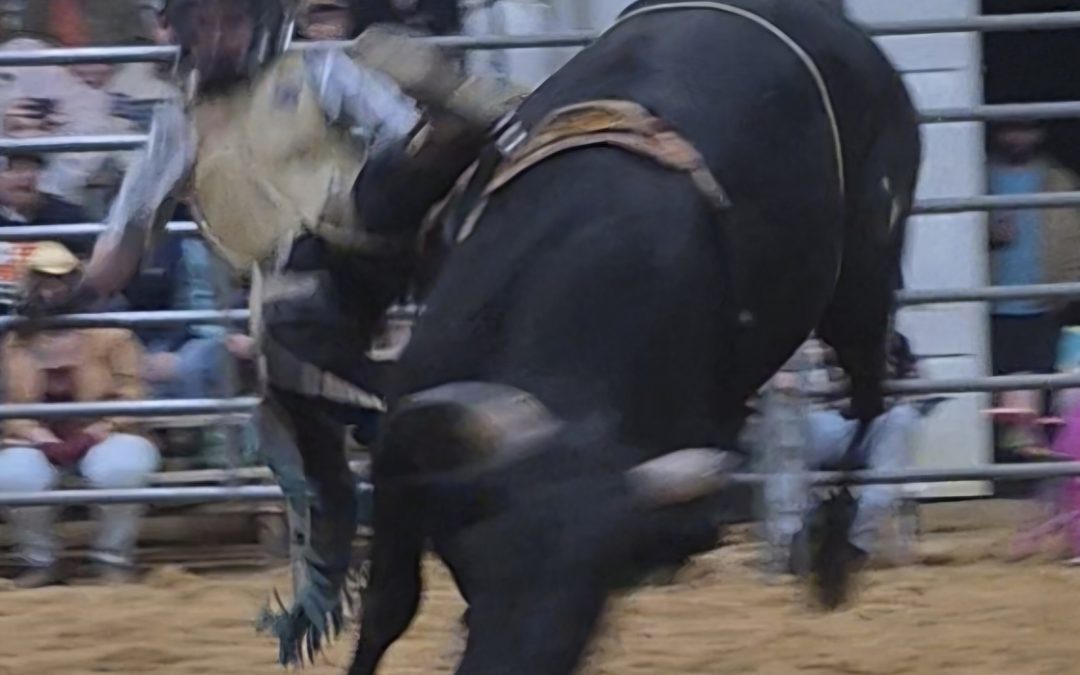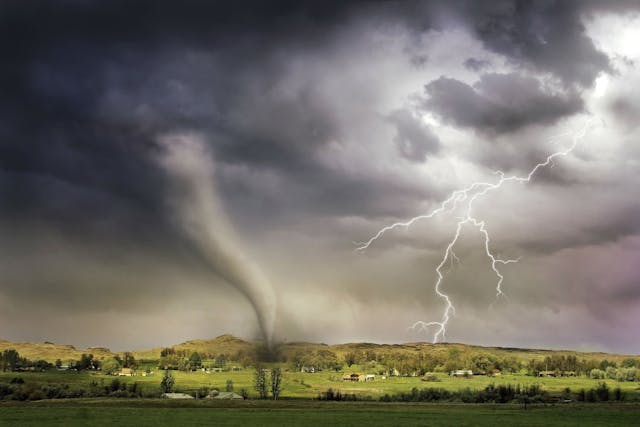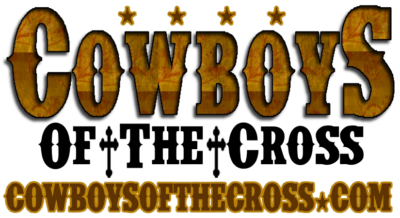
by admin | Nov 12, 2025 | James
By Scott Hilgendorff / Cowboys of the Cross
There’s a great old country song with the lead of the chorus, “Oh Lord, it’s hard to be humble when you’re perfect in every way.”
James wants us to recognize the seriousness of the harm our pride can do against how much more seriously God wants our devotion to Him.
James 4:5-10 5 Or do you suppose it is to no purpose that the Scripture says, “He yearns jealously over the spirit that he has made to dwell in us”? 6 But he gives more grace. Therefore it says, “God opposes the proud but gives grace to the humble.” 7 Submit yourselves therefore to God. Resist the devil, and he will flee from you. 8 Draw near to God, and he will draw near to you. Cleanse your hands, you sinners, and purify your hearts, you double-minded. 9 Be wretched and mourn and weep. Let your laughter be turned to mourning and your joy to gloom. 10 Humble yourselves before the Lord, and he will exalt you.
This is hard to comprehend if we look at it like our own often broken or struggling relationships. Our jealousy leads to conflict among our friends, family or others we share connections with. It can lead to evil acts like murder as James taught us in the previous verses in James 4.
Since pride can lead to evil acts, it places us in opposition to God. According the Gospel, God’s plan for salvation, it’s our sin that separates us from Him and that without a saving faith in Jesus, leads to God’s judgment and wrath against us. He is jealous of anything we let come between us and His love for us because we were created to worship Him. Adam and Eve chose for there to be sin and the separation it created but God still wants us with Him for eternity.
Those who do not have a saving faith in Jesus are destined to Hell but God loves us enough that He sent Jesus to take the punishment meant for our sins. When we have belief in Jesus and what he did for us, repentance of our sin and by asking to be forgiven, we can have a perfect eternity filled with worship of God waiting for us. God is jealous enough of us to send Jesus to die for us. That’s a different kind of jealousy than what we typically experience in relationships.
When we do have a saving faith, God knows we are still going to sin and that temptation from the devil can cause us to fall away. He will still receive us into Heaven through his grace, after we’ve humbled ourselves and chosen to submit to Jesus as Lord through our salvation, but He wants us to resist the devil and temptation and turn to Him in order to receive that salvation.
Once saved from the judgment of our sin, God still wants our devotion and He will lift us to a higher position. Once in Heaven, we are made perfect, but until then, God wants us to fight sin as seriously as He wants us to be with Him for eternity. To have God jealous for us to want to give us a perfect eternity full of a joy we can’t comprehend–that’s a great kind of jealousy.

by admin | Oct 29, 2025 | James
By Scott Hilgendorff / Cowboys of the Cross
Who knows that rodeo competitor who talks and acts like he wants to be a cowboy and a winner but also chases trouble. It’s often relationship after relationship that totally screws with his head. He draws out because the girl is angry he’s entered or he bucks off or misses his catch because his head is either on the fight they had or what Disney referred to as twitterpated in Bambi—caught up in the idea of being in love with the girl that he’s lost focus on everything else.
That’s a milder example of what can happen when we try to chase two different and opposite pursuits.
Now imagine if that cowboy had been seeking godly wisdom like James instructs us in Chapter 3 and, out of that wisdom, he knows he was called to compete as a Christian, setting an example for Christ. Becoming a top hand on either end of the arena was how God was going to use him to build relationships with others, first as a cowboy but then as a Christian, that would lead others to a saving faith in Jesus.
Being drawn into a bad relationship with a girl who isn’t a believer to begin with is a common mistake guys make and in this situation, could destroy everything God called that cowboy to do.
James 4: 1-4 What causes quarrels and what causes fights among you? Is it not this, that your passions are at war within you? 2 You desire and do not have, so you murder. You covet and cannot obtain, so you fight and quarrel. You do not have, because you do not ask. 3 You ask and do not receive, because you ask wrongly, to spend it on your passions. 4 You adulterous people! Do you not know that friendship with the world is enmity with God? Therefore whoever wishes to be a friend of the world makes himself an enemy of God.
James shows us just how important it is to put God first.
When we find ourselves chasing our own passions, we can find our prayers coming up empty because we’re asking God for materialistic wants versus needs that line up with a life spent following God’s direction. It’s when our desires come from pursuing God that we see our prayers answered because our prayers will look very different when we’re not seeking our wants from Him.
James’ examples are much more extreme than our illustration and yet we can see them played out every day just by putting the news on television or reading through the headlines—we can see endless examples of conflicts leading to murder. James wants us to see that by pursuing our own desires and caring deeply about them can lead to chaos. At the least, our jealousy can lead us into conflict.
When we pursue our own desires, James says it’s like we commit adultery against God by putting our relationship with our desires ahead of God’s call on our life. By doing this, we make ourselves an enemy of God and it should give us pause to ask ourselves if we have a genuine saving faith in Jesus. Without that saving faith, we are all enemies of God because our sin separates us from Him and will fall under His judgment and condemnation when we die.

by admin | Oct 1, 2025 | James
By Scott Hilgendorff / Cowboys of the Cross
Think about where there is conflict in your life. Some people certainly have more peace than others but we live in a society in which there is always conflict. It can be between two cowboys on the rodeo grounds fighting about a girl they both dated, a group of ranchers fighting the Bureau of Land Management or against a solar panel project on valuable grazing land. Global conflicts that we otherwise would know little about can impact the price of gas here at home.
There’s often someone on the rodeo grounds who always either seems to be in trouble of some kind or he’s someone who is looking to cause it. I think we even celebrate chaos. The person attracting or causing trouble has no shortage of like-minded friends.
That comes from our sin nature. Regardless of what someone believes in terms of their faith, we are all born into sin; we all have the ability from birth to feel anger or even hate. A saving faith in Jesus changes that. It doesn’t remove our ability to sin but it starts us on a path toward becoming more like Jesus. It doesn’t make us better than those living in conflict and conflict of our own is still going to happen. This world isn’t perfect and while we grow more like Jesus as we grow in our faith, sin around us is still going to bring conflict into our lives.
How we, as Christians, approach it is where it all changes.
James 3:13-18 Who is wise and understanding among you? By his good conduct let him show his works in the meekness of wisdom. 14 But if you have bitter jealousy and selfish ambition in your hearts, do not boast and be false to the truth. 15 This is not the wisdom that comes down from above, but is earthly, unspiritual, demonic. 16 For where jealousy and selfish ambition exist, there will be disorder and every vile practice. 17 But the wisdom from above is first pure, then peaceable, gentle, open to reason, full of mercy and good fruits, impartial and sincere. 18 And a harvest of righteousness is sown in peace by those who make peace.
If we seek wisdom from God, how we approach conflict changes. Without Jesus, it’s easier to be influenced by bitter jealousy and selfish goals and those attitudes are going to lead us right into conflict. Worse, James says when we seek our own ambitions in a selfish way, our actions progress from being worldly thinking to something that’s even demonic. Just like he shares in James 2 that the words we speak have the power to unleash hell on Earth, how we work to achieve our goals can be the work of hell just as easily. He isn’t kidding around when he tells us to seek godly wisdom as we live out our lives here. Godly wisdom, he tells us, is pure, can lead to peace and giving mercy to others. When our goals line up with what God would want us to do and our actions to achieve them follow God’s instructions for us through scripture, we generate peace around us and demonstrate righteousness.
Producing righteousness means that our pursuit of godly wisdom creates signs of what is good, just and right for others to see. In that way, we can begin to show our saving faith in Jesus is real and transforming us in the hope others would desire this in their lives as well.
It’s up to us as believers to pursue biblical knowledge which is our main source of godly wisdom. If we’re unsure on our own of what God would have us do, we should seek advice from other Christians that we know and trust approach their faith the same way.
Going back to the Old Testament, Proverbs reminds us that as real as the harm that can be done by pursuing our own goals without God, pursuing wisdom leads to results that are more valuable to gems and precious metals.
Proverbs 3:13-15
Blessed are those who find wisdom,
those who gain understanding,
14 for she is more profitable than silver
and yields better returns than gold.
15 She is more precious than rubies;
nothing you desire can compare with her.
Living a life our own way can produce evil, living a life following God’s direction can lead to peace in the chaos around us.
If you’ve been surrounded by drama, gossip and the stress from a chaotic breakup that follows you to the rodeo grounds, who wouldn’t want to roll into a performance and just know peace; to be able to get your horse ready or set your bronc saddle without knowing there was going to be some kind of conflict before the show was over?
Why wouldn’t we want to have that peace around us all the time?

by admin | Aug 18, 2025 | James
By Scott HIlgendorff / Cowboys of the Cross
Ever seen a rodeo cowboy lose it on a judge for a bad call or a producer he thinks has cheated him?
It can get pretty ugly, lead to fines and bans from an association and can even end in throwing fists, a jail cell and assault charges.
Ugly words escalate a situation quickly and hurt all the people around us including ourselves.
James stresses for us the power of our words, referring to our tongues as the source and, even though the illustration is almost 2,000 years old, uses illustrations we can understand from today—especially horse people.
Using the examples of bits and the rudders of ships, he explains how something so small is capable of steering a horse or an entire boat. We know from Jesus and Paul in other parts of the New Testament of the importance of speaking in kindness and using our voices to share the gospel with others, but James focuses on the dangerous power of our tongues.
James 3:6 The tongue also is a fire, a world of evil among the parts of the body. It corrupts the whole body, sets the whole course of one’s life on fire, and is itself set on fire by hell.
We can ruin our entire lives with the words we speak and a single angry outburst. What we say to our boss in a heated moment can mean the end of a job, missed truck and house payments and family leaving us because we can no longer support them; all because we couldn’t control our tongue.
Worse is the harm we can do to others as James describes the tongue as a fire from hell. He makes it clear our tongues are evil and that while we have been able to tame the animal kingdom around us, no one has ever been able to tame the tongue. James 3:1-12 describe all of these concerns about the words we speak.
In a moment of control, we can give praise to God for something good in our lives but then completely ignore God’s importance in our life by using our words to cut down someone else, forgetting we are all made in God’s image.
Our words, according to James, has the power to do as much harm to the people around us the way a single spark can set an entire forest on fire and corrupts what is good in us. One piece of gossip spread to another on the rodeo grounds or at the horse sale can spread, exaggerate and completely destroy a person’s life.
Yes, when we have a saving faith in Jesus, God still sees us as good and righteous despite all of this, but James is telling us how important our words are and the need to be in total control of the words we speak. They either do good all the time or all the good our words can achieve are meaningless if we also speak harmful words.
We need to hold our tongue, think before we speak, and remain silent if our words could do harm.
And to the beginning of the chapter, those of us who teach or preach are warned to be the most careful about what we say because we are going to be judged more severely by God. I don’t know what the looks like but I personally take pressure for that every time I try to teach God’s word at cowboy church or on social media.
James 3:1-12 Not many of you should become teachers, my fellow believers, because you know that we who teach will be judged more strictly. 2 We all stumble in many ways. Anyone who is never at fault in what they say is perfect, able to keep their whole body in check.
3 When we put bits into the mouths of horses to make them obey us, we can turn the whole animal. 4 Or take ships as an example. Although they are so large and are driven by strong winds, they are steered by a very small rudder wherever the pilot wants to go. 5 Likewise, the tongue is a small part of the body, but it makes great boasts. Consider what a great forest is set on fire by a small spark. 6 The tongue also is a fire, a world of evil among the parts of the body. It corrupts the whole body, sets the whole course of one’s life on fire, and is itself set on fire by hell.
7 All kinds of animals, birds, reptiles and sea creatures are being tamed and have been tamed by mankind, 8 but no human being can tame the tongue. It is a restless evil, full of deadly poison.
9 With the tongue we praise our Lord and Father, and with it we curse human beings, who have been made in God’s likeness. 10 Out of the same mouth come praise and cursing. My brothers and sisters, this should not be. 11 Can both fresh water and salt water flow from the same spring? 12 My brothers and sisters, can a fig tree bear olives, or a grapevine bear figs? Neither can a salt spring produce fresh water.

by admin | Jun 30, 2025 | James
By Scott Hilgendorff / Cowboys of the Cross
James aggressively raises the bar when it comes to expecting Christians to live out their faith.
There’s something about a cowboy and bad relationships that seems pretty common. There are great exceptions but many go from one relationship to another where the girl he picks manages to make him feel bad about himself—useless.
Sometimes our families or an employer can do it and sometimes we can do it to ourselves where a buck off streak or a series of misses on the roping side of the arena, lead a rodeo cowboy to think he’s becoming a failure.
If we read James without a fuller understanding of the Bible, he can make us feel pretty useless too.
James 2:20 “Do you want to be shown, you foolish person, that faith apart from works is useless?”
There’s not much explanation needed here as James makes it clear our faith is pointless if we don’t live it out.
He then proceeds to give us some examples from what we have as the Old Testament to show us what genuine faith looks like.
James 2:21-26 Was not Abraham our father justified by works when he offered up his son Isaac on the altar? 22 You see that faith was active along with his works, and faith was completed by his works; 23 and the Scripture was fulfilled that says, “Abraham believed God, and it was counted to him as righteousness”—and he was called a friend of God. 24You see that a person is justified by works and not by faith alone. 25 And in the same way was not also Rahab the prostitute justified by works when she received the messengers and sent them out by another way? 26 For as the body apart from the spirit is dead, so also faith apart from works is dead.
James uses the accounts of Abraham and Rahab to show what faith in action looks like. Abraham had been asked by God to sacrifice his son, Isaac. God didn’t require him to go through with it, but his willingness proved his faith. James uses it as an example to show us that if our faith is real, we will do what God asks. Now, we have both and Old and New Testament to help us know what God and Jesus ask of us.
Rahab was a prostitute who hid spies as Joshua was preparing to lead the Israelites to take the city of Jericho as commanded by God. Rahab showed that she believed God was the true god by hiding and allowing the spies to escape discovery and help carry out God’s plan. She demonstrated her faith by her actions.
Our actions can’t save us from God’s wrath, but when our salvation is real, our desire to follow Jesus and what he commands become proof that out faith is real. We don’t ever have to do anything more than believe Jesus was and is who he said, repent and ask to be forgiven, to be saved. James tells us that is dead faith; useless. But if we’re wondering how to tell if we are truly saved, one piece of evidence is our desire to live out what we learn from the Bible.

by admin | Jun 19, 2025 | James
By Scott Hilgendorff / Cowboys of the Cross
Even demons believe in God but do our lives demonstrate that we have a saving faith in Jesus?
If you look around during the opening sequence of a rodeo, you can see evidence of faith everywhere. People in the bleachers stand with their hats off and bow their heads in prayer as the announcer often leads a scripted prayer or uses “The Cowboy Prayer” that most of us have heard dozens to more than a hundred times. You can see the rodeo cowboys’ crosses on necklaces dangling out from under their shirts as gravity pulls them free in their forward-leaning positions as they pray. You might see some take a knee on the arena ground and point to the sky after a win or even just a safe dismount or run in a gesture toward God.
But if you walk through the parking lot after the performance, you can just as easily see the sinful side of some of those same cowboys as no one watches their language without the spectators and especially kids around as beer and weed come out. If you know what you’re looking for, you’ll see a handshake that exchanges money or a baggy. Later, some will hook up with buckle bunnies at a bar somewhere or get into a fight. Those are just some of the visible sins that can help create a negative stereotype for rodeo cowboys.
And of course, it isn’t like that with everyone. There’s still a huge family component to the sport but for many, that opening prayer will be the only time that family prays all week.
And also, of course, there are devout Christians in the mix who, like any Christian trying to follow Jesus, struggle with their sins but are dedicated to growing in their faith.
Real faith that leads to action.
And that’s what James is talking about in all of James 2:14-26.
James 2:14-18 What good is it, my brothers and sisters, if someone claims to have faith but has no deeds? Can such faith save them? 15 Suppose a brother or a sister is without clothes and daily food. 16 If one of you says to them, “Go in peace; keep warm and well fed,” but does nothing about their physical needs, what good is it? 17 In the same way, faith by itself, if it is not accompanied by action, is dead. 18 But someone will say, “You have faith; I have deeds.”Show me your faith without deeds, and I will show you my faith by my deeds. 19 You believe that there is one God. Good! Even the demons believe that—and shudder.
James is telling us that when our saving faith in Jesus is real, it leads us to carry out “deeds” which are the actions we take as we follow what Jesus and others teach us in the Bible. Helping someone in need, speaking words that lift people up, refraining from anger and immorality.
None of these earn us salvation but they are proof that we’re saved because when our faith is real, we want to be more like Jesus and actually live out what the Bible teaches us. A cross around our necks can show us that we have faith, but how we conduct ourselves shows our faith is alive and real.
Wearing crosses and acknowledging God by pointing upward after a win can show that we have faith, that we at least believe in God, but James reminds us that even demons believe God is real. When our faith has saved us by truly believing Jesus was the son of God, died for our sins and was resurrected so that with repentance and asking to be forgiven of our sins, then we are going to live out our faith.
Just the act of receiving salvation requires more than faith. We have to believe but we also have to take the actions of repenting of our sin and asking to be forgiven.
James puts it bluntly that when there are no actions to back up our faith, our faith is dead. It’s actually as useless as telling a hungry person who can’t afford food, to go find something to eat. If we find ourselves wondering if we are really saved, by looking at our lives and seeing if we have a desire to know what’s in the Bible and that we’re trying to live it out; that can be proof to ourselves that we have a genuine saving faith in Jesus.
If there are actions to back up why we wear that cross or have it as a tattoo on our arm, others can see that our faith is real and alive. It can help others to want to know how to find an eternity in Heaven when they see our faith in action.
It’s okay to wear the cross or have the tattoo, there just are going to be Christ-like actions to back it up when our faith is real.







Recent Comments